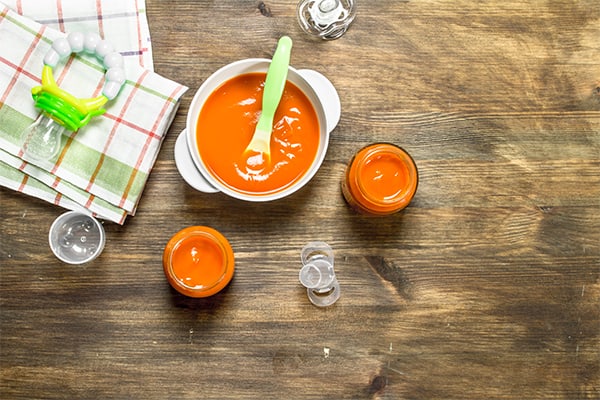As mothers, we are constantly bombarded with superfoods for toddlers ads everywhere we look. And that leads to a selection process that leads to more questions rather than answers.
As Asian women, we typically reply with, “just go with fruits and vegetables”, as they indeed provide tons of vitamins/minerals for our beloved little humans.
But then again, modern science has shown that there’s more to just the regular vegetables that our parents forced us to eat as babies.
For example, most of us didn’t eat chia seeds when we were little.
That is why we decided to come up with an article that talks about every aspect of toddler superfoods – and the health benefits they provide to our children.
So mommy, put your baby in his/her crib or rocker and let’s talk about superfoods for your little one.
What are superfoods?
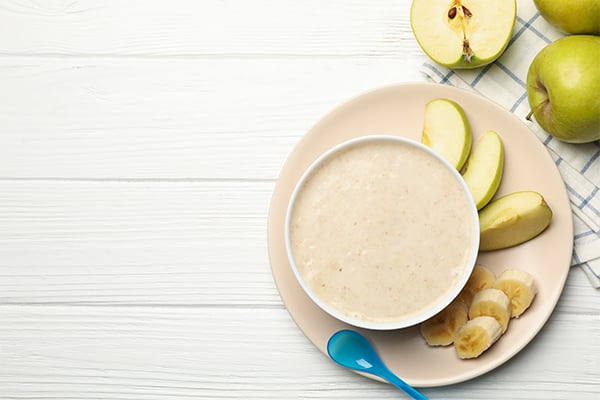
Superfoods are unprocessed food that retains its original form. It’s one that has high nutritional density, rich in minerals, vitamins, antioxidants and is typically plant-based.
This definition works for both children and adults – with only the distinct difference in how they are prepared and consumed by children.
For example, bananas are considered as “superfoods” as they are a great source of potassium, magnesium, B12, and B6 vitamins, but it needs to be mashed if you want to feed it to your kid.
Now some companies offer “superfoods”. And said products do claim to provide a balanced diet, as well as contain all the same benefits of an organically prepared banana toddler meal – with a few more vitamins and minerals added in.
Are they safe? Well, if they passed accredited testing standards, we would assume that they are.
But do they fall under the original definition of what superfoods are? Well, aside from those that are 100% organic – technically, they aren’t.
Going organic or processed, though, is an entirely different topic altogether – and is something that we will tackle in a future article. We just wanted to go down that route to get that issue out of the way.
Going back to what “superfoods” are, here’s what Mayo Clinic has to say about it, and we quote:
- an “excellent source of fibre, b vitamins, minerals, amino acids, and other nutrients.”
- “high in phytonutrients and antioxidant compounds, such as vitamins A and E and beta-carotene.”
- “may help reduce the risk of heart disease, iron deficiency, and other health conditions.”
Why are superfoods important for toddlers?
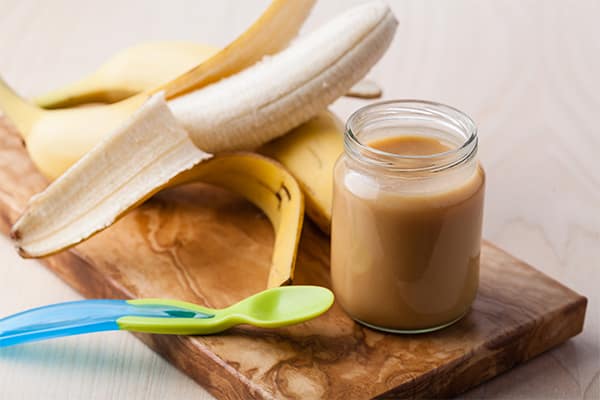
As mothers, we all know how fragile a toddler is. A slight deviation in the food they eat or a lack of specific vitamins or minerals can lead to indigestion or allergies.
Every child needs proper nutrition for them to properly develop the proper bodily and brain function as they grow.
From behavioural patterns to how brain development – all of this can be affected by the foods they eat, and the nutrients that they get from them.
An imbalance, or lack, of these essential nutrients can have a massive impact on both their current and future state of health.
What are these nutrient you ask?
Calcium – around 500 mg per day for kids aged 1 to 3 and 800 mg for children four years old and above.
Iron – around 7mg per day. Iron ensures that haemoglobin levels (part of red blood cells that carry oxygen) are within safe levels. Iron absorption deficiency can lead to anaemia – which can slow down brain development and make your child feel weak.
Vitamin D – around 400 IU per day. It helps build strong muscles, teeth, and bones.
Vitamin A – around 4,000 IU per day. Vitamin A helps improve a child’s vision, fights off viral infections, repairs tissues within the body, and helps maintain healthy hair, nails, and skin.
Vitamin C – around 15mg per day. It’s proven to boost immunity against colds and infections and can help heal cuts and bruises faster.
Vitamin K – helps with blood clotting, as well as aid in producing other proteins that are essential in maintaining the health of the kidney, bone, and blood of your baby.
Vitamin B2 – helps in converting foods into glucose which provides energy for your kid.
Aside from that, here are other benefits your toddler gets from eating healthy food.
- It keeps their energy level stable
- It helps improve the development of your kid’s brain and connective tissue
- It helps stabilize their mood
- It helps them maintain a healthy weight
- It helps prevent mental conditions like anxiety, and depression
- Produces free radicals that can help boost the immune system of your baby
By providing our precious little ones with nutrient-rich superfoods, we’re ensuring that they get the right amount of essential nutrients as well as instil healthy eating habits.
Foods you should not feed to toddlers.
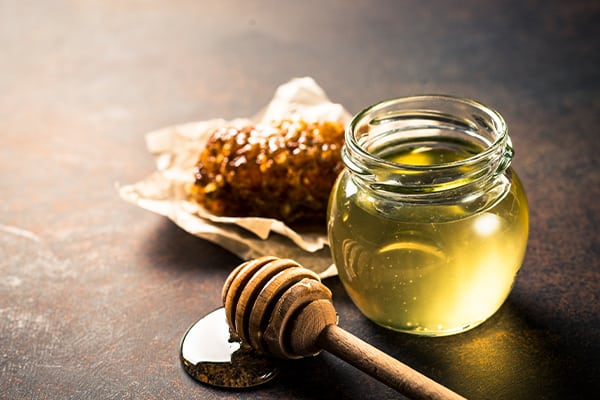
Salty foods
Children should not be eating foods with lots of salt as it could affect their kidneys.
So when preparing their meals, never add salt to the water you’re using or directly to their food. Do not let them eat gravy as well as it usually has a high salt content.
Foods with lots of sugar
Toddlers don’t need sugar.
Keep in mind that sugar usually turns to saturated fat which is bad for your child’s health.
Foods with lots of saturated fats
Saturated fat, also referred to as fatty acids, can lead to an increase in harmful cholesterol levels – which in the future can heighten the probability of a heart attack.
Junk foods are full of saturated fats – which toddlers should not be eating in the first place.
NOTE: Don’t confuse Omega-3 fatty acids usually found in cold water fatty fish (salmon, tuna, mackerel) with saturated fats. Omega-3 is great for your baby.
Foods that could lead to choking
Giving your toddler whole nuts and peanuts is ok, only if you first crush them into smaller pieces.
Nuts can sometimes cause your baby to choke when ingested.
You can add jelly cubes to the list as well.
Honey
Aside from having high sugar content, honey sometimes contains bacteria that produce toxins within your child’s digestive system. Once this happens, it could lead to infant botulism – which could cause difficulty in breathing or eating.
And the most important tip of all, make sure always to check that your baby is not ingesting food that he/she is allergic to.
How to encourage fussy eaters to eat Superfoods
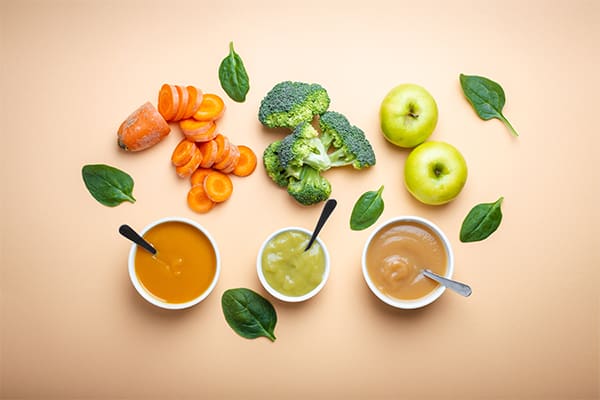
Kids that are fussy eaters don’t just happen overnight but are products of their dietary habits as a baby.
Mothers are not entirely at fault here, though, because, for one, we have our husbands to blame for that as well. And secondly, how can you resist a child begging you for another lick of ice cream?
Jokes aside though, it is of utmost importance for us mothers to make sure that our kids can get used to eating and the taste of vegetables. Training them to do so not only ensures that they get vital vitamins/minerals but also condition them to be vigilant about their food intake as they get older.
With that said, here are some tips that you can start doing now to minimize your child’s fussiness when it comes to eating healthy food.
Serve Vegetables First During Meals
We typically serve vegetables as part of our main course during meals. This practice, in turn, creates the notion to our children that eating vegetables is a “must” rather than an “option”.
By serving vegetables first during meals (like you would an appetizer), you set a precedent where they need to finish their vegetables first before they get their main meal.
We know that this is somewhat an extra effort, as not many households (including ours) don’t have appetizers, but it’s just a small inconvenience that will pay off in the future.
Use Vegetables As Snacks
It’s uncommon to associate vegetables as snacks, but that doesn’t mean it’s not possible.
To make things appealing and fun for your child, try using cookie cutters to cut vegetables into fun shapes.
Bell peppers can become flowers, while cucumbers can become bite-sized stars. You can also do the same for fruits like apples.
Add A Bit Of Fun & Adventure
Kids who are fussy eaters will usually say no to eating fruits and vegetables because they don’t like the taste or texture – and because sweets are just more appealing to their taste buds.
And since adding sugar to fruits and vegetables is not an option, then why not come up with fun excuses why they need to eat fruits and vegetables.
Come up with elaborate stories where fruits and vegetables are heroes trying to protect your kid’s bodies from evil viruses.
We all know that kids are impressionable and love a good story. Use that to your advantage.
Avoid “Fake” Veggies
These are chips and crackers labelled as veggie snacks. Not only do they contain preservatives – but they indirectly tell your child that eating something from a plastic container is ok.
This practice is how a child gets the notion that eating junk food is alright.
If you want to give your child veggie chips, buy a dehydrator and make veggie chips from actual organic vegetables yourself.
These are some of the best superfoods for babies.
Carrots
Carrots help strengthen your child’s immune system. It contains beta carotene – a well-known antioxidant – which gets converted into Vitamin A when digested.
Vitamin A is also excellent in keeping the urinary tract, digestive system, airways, cells, and skin healthy.
Yoghurt
Eating yoghurt can help boost the number of friendly bacteria within your child’s stomach – reducing food sensitivity and the development of eczema.
Yoghurt is also a great source of Vitamin D, Calcium, and Potassium – which helps in your child’s growth and development.
Berries
Not only are Raspberries, Blackberries, and Blueberries tasty, but they are also a great source of Vitamin C and E.
Eating berries help fight off free radicals and helps keep your child’s immunity in tip-top shape.
Avocado
Avocado needs no introduction as it is widely considered a superfood.
When added to your kid’s diet, it can provide minerals like zinc, phosphorus, iron, sodium, magnesium, potassium, and calcium.
Potassium and Calcium work great in helping your child develop healthy bones and firm tissues. Iron, on the other hand, improves your child’s haemoglobin count – which keeps blood vessels healthy and lowers the risk of anaemia.
Spinach
Out of all the superfoods available, this is undoubtedly the one most kids hate the most. And that is entirely understandable as it is indeed an acquired taste.
But then again, the health benefits it provides is off the roof.
Spinach contains folate, thiamin, Vitamin K, Vitamin E, Vitamin C, and Vitamin A – all of which help improve the immunity of your baby against bacteria and viruses.
It also has calcium, potassium, and iron, which helps in brain health and development as well as the production of haemoglobin.
On top of that, spinach is also a good source of antimicrobial elements that can help prevent and treat urinary infections.
As for processed superfoods, we did mention earlier that processed food is no match – much more a replacement – to organic superfoods. But then again, we also understand the reality that most parents go through each day when preparing meals.
Just like us, we know that you also have work to attend to and deadlines to beat. Thus, you sometimes will not be able to prepare fresh superfoods for your baby on a consistent level.
With that reality in mind, we would like to share our personal go-to “processed superfoods” list that we have at home.
As a disclaimer, we are not in any way affiliated with these products, nor do we suggest them as a complete replacement to all-natural superfoods.
HappyKid Organic Apple, Kale & Mango
This product contains organic apple puree, organic beet puree, organic strawberry puree, organic kiwi puree, ascorbic acid (vitamin C), and organic lemon juice concentrate.
The product is certified organic, NON-GMO, does not have artificial sweeteners, is void of any high fructose corn syrup or trans fats, and has BPO-free packaging.
This product contains organic pea protein, coconut sugar, a blend of healthy greens (barley grass, wheatgrass, alfalfa), beet juice powder, acacia gum, stevia, bacillus coagulans (probiotic), banana, pineapple, carrot, sweet potato, raspberry, acai, blueberry, broccoli, and spinach.
The product is gluten, dairy, soy, and grain-free and does not contain any nut allergens.
Happy Tot has a variety of Superfoods products that contain organic pear puree, banana puree, sweet potato puree, milled organic Salba Chia seed, pumpkin puree, ascorbic acid (vitamin C), and lemon juice concentrate.
This product contains organic pears, spinach puree, vitamin C, and citric acid.
The ingredients are all organic and non-GMO and are grown using strict safety and health standards.
Before we end this article, please be clear that here at Mother and Baby SG, we aren’t certified medical or health professionals. The information we wrote on here, as well as our meal suggestions, are all based on our personal experience as parents raising our firstborn.
If you want to be 100% sure as to what superfoods are best for your kids or looking for a potential meat substitute, we suggest that you consult with your paediatrician or a health professional.
Anyway, we hope that this article has helped you better understand what superfoods are and what they can contribute to the overall health of your precious child.
If you have any questions, suggestions, or reactions about what you just read, please feel free to send us a message.
